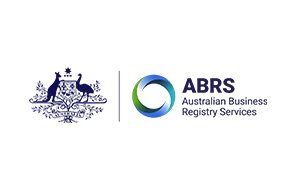Our Economy : A House of Cards

In just the last few days and weeks, businesses have been closing down, workers are being stood down and people are queuing miles long outside Centrelink. Looks like our economy is falling apart like a house of cards!
Hindsight is a great weapon. If only we all had this advantage.
To see our government so taken aback by the impact Covid-19 shutdowns are having on our economy, lead us to ponder if they saw any of this coming, and if they were prepared for this!
Consider this. The hugely talked about cash flow support for small and medium businesses to support them in keeping people employed;
- Rewards employers who had employed people in Jan to March period, a period when there was no COVID impact.
- Limit it to only SMEs with turnover of less than $50m. Hence all large businesses and chains of retail stores were automatically out.
- Doesn't give them hard cash in their bank to be able to pay wages in future! Instead puts this money into their ATO debt account. Who is being saved from going belly up? The business or the tax office?
As a result of this misplaced policy, on one side large number of businesses have no money to pay wages and on the other hand a number of other businesses which are not impacted by COVID are enjoying free money! Why reward the toilet paper makers or grocery stores who are already milking this crisis?
If only a little financial common sense could prevail.
It's not that we didn't know what was happening in the financial markets across the globe? A step by step analysis would help.
- What do we want to prevent? A large scale of unemployment.
- What do we not want to see? A long line at Centrelink for financial support.
- How do we do it? Incentivise employers, who are unable to continue functioning, pay some base wages so employees can pay their basic living costs.
- And how do we do it? Well UK and other countries are already doing it. Subsidise say 80% of the wage bill of employees a business can't afford to keep. Make the business still pay 20%, so that they have some skin in the game.
- A blanket subsidy?
No, that would be a huge drain on our exchequer.
- For employees who would otherwise loose their job, subsidise 80% of their wage capped at $1000 per fortnight. Exclude owner-employees and their associates from this leg of the incentive.
- For employees who would continue to be employed, subsidise 20% of their wage capped at $200 per fortnight. Include owner-employees in this part. This measure is to just bring a level of equity, so that businesses who are trying to do the right thing don't feel cheated.
- And can we make it better? Sure can. May be exclude businesses from having to pay super, so they can use cash to keep more people in jobs. May be make part or all of this subsidy tax free, so that we are not just rotating cash in and out of the treasury.
- Which businesses would qualify? Simply ALL! After all, businesses which are not impacted are only going to get a small subsidy.
If you do it right, and minimise the scope of exploitation, most businesses will do the right thing. There will be fewer stood downs, largely reduced stress of living costs, businesses trying harder to survive rather than choosing the easy way of closing down, and the government under much less pressure to do something!
But what about the huge cost of mortgage and rent, both residential and commercial.
Let's take a step back. Our Prime Minister has been vocal about saying that in this period of financial crisis all our balance sheets will suffer, be it mom and dad household, small to big businesses or indeed the governments. He possibly missed out one key economic player, our banks! Banks are being asked to defer mortgage payments, but they are going to accrue interest for the deferred period, and charge interest on interest. I thus fail to understand what sacrifices are they making to help our community get through this catastrophe?
Better would have been to 'hibernate' the economy, as Scott Morrison keeps alluding to. Again some suggestion to do the trick.
- Legalise a 75% drop in rents, interest and mortgage payments.
- Allow those who cannot pay even 25% mortgage to request deferral but at a cost of this going on to their credit files. After all, these are the spenders - not the rainy day savers. They need to take some responsibility for making the choices they did.
- This will impact negatively our retirees who live off rental income. Increase their Centrelink support equal to say 80% of loss of rent.
So what does it take, to take the right decision? As always, strong political Will.
When the going gets tough, the tough needs to get going!

Join MGAA's Community






